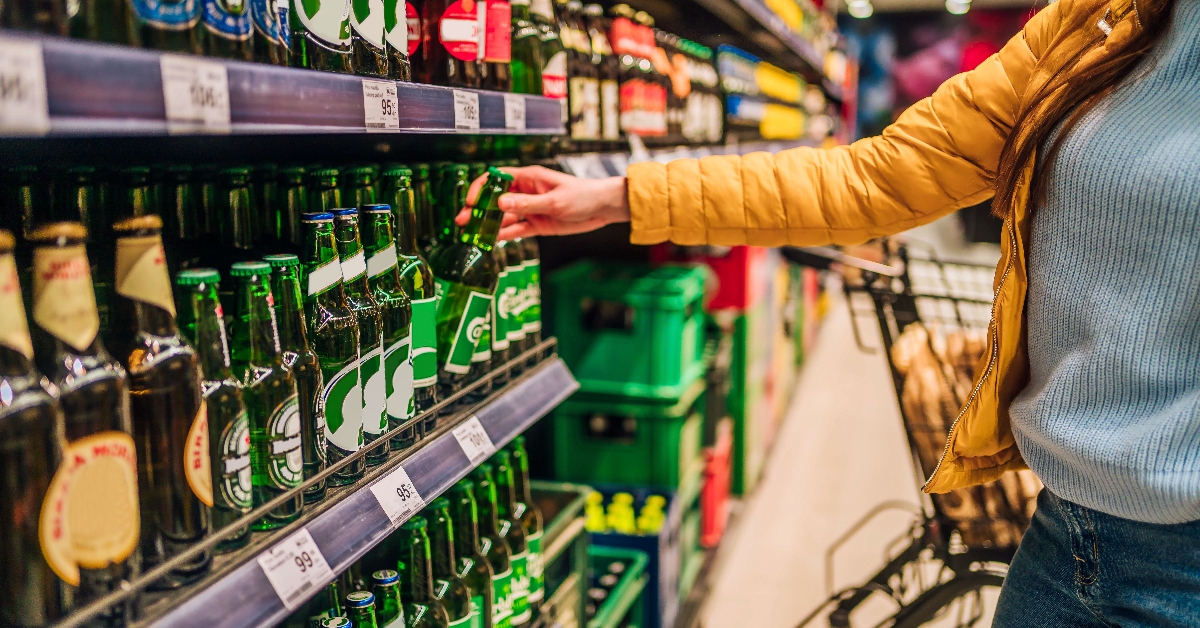Ultra-processed foods (UPFs), alcohol, tobacco and fossil fuels are killing 2.7 million people every year across Europe, according to the World Health Organisation (WHO).
Experts said “powerful industries” are driving ill health and premature death because they interfere in government policies and efforts to cut cases of cancer, heart disease and diabetes.
In a new report, the WHO calls for “strict regulation to curb industry power” and for governments to drive forward health policies which are regularly “challenged, delayed, weakened or stopped” by industry.
The WHO said “more than 7,400 people are dying every day” in its European region due to harmful products and practices “driven by commercial industry”.
It said: “These commercial products contribute to 24% of all deaths, including significant mortality from cardiovascular diseases (51.4%) and cancer (46.4%).”
Overall, tobacco, alcohol, UPF food and fuel industries are wholly or partly responsible for 2.7 million deaths per year in Europe, according to the document.
Meanwhile, the global picture shows that tobacco, UPFs, fossil fuels and alcohol cause 19 million deaths per year, or 34% of all deaths.
Breaking down the data, WHO said 1.15 million deaths per year in Europe are caused by smoking, 426,857 by alcohol, 117,290 by diets high in processed meats and 252,187 by diets high in salt.
 iStock
iStockThese figures do not even include deaths caused by obesity, high blood pressure, high blood sugar or high cholesterol level – all of which are linked to unhealthy diets, it said.
The report called on governments to recognise the tactics used by industry – such as blaming individuals, marketing, spreading disinformation, promotions on social media, lobbying and “subverting science” such as by funding research that promotes their goals.
The WHO said the “primary interest of all major corporations is profit”, while having a large market share “often also translates into political power”.
It added: “Regardless of the product they sell, their (industry) interests do not align with either public health or the broader public interest.
“Any policy that could impact their sales and profits is therefore a threat, and they should play no role in the development of that policy.”
The report said that, with the exception of rules around tobacco, “global efforts to regulate harmful marketing have, at best, been underwhelming”.
It added: “While legal measures regulating alcohol and unhealthy food marketing are in existence in several countries across the WHO European region and across the world, these are often narrow in scope, focused on specific media or settings, certain population groups or on specific marketing techniques, and therefore confer insufficient protection.”
Furthermore, voluntary codes where industry says it can regulate itself are ineffective, WHO said,
Dr Hans Kluge, WHO regional director for Europe, said: “Four industries kill at least 7,000 people in our region every day.
“The same large commercial entities block regulation that would protect the public from harmful products and marketing, and protect health policy from industry interference.
“Industry tactics include exploitation of vulnerable people through targeted marketing strategies, misleading consumers, and making false claims about the benefits of their products or their environmental credentials.
“These tactics threaten public health gains of the past century and prevent countries from reaching their health targets.”
Belgian deputy prime minister, Frank Vandenbroucke, who launched the study, said: “For too long we have considered risk factors as being mostly linked to individual choices.
“We need to re-frame the problem as a systemic problem, where policy has to counter ‘hyper-consumption environments’, restrict marketing, and stop interference in policy making.”
In the UK, the Tobacco and Vapes Bill – which would restrict the marketing of vapes to children and ban children from taking up smoking – failed to make it through Parliament before it was dissolved for the General Election.
Plans to tackle the promotion of foods high in fat, sugar or salt have also been pushed back.
The policy, part of the Government’s anti-obesity strategy for England, had already been pushed back to October 2023.
It has now been delayed until October 2025 while the Government continues to review the impact it would have on shoppers and businesses, Downing Street has said.
Follow STV News on WhatsApp
Scan the QR code on your mobile device for all the latest news from around the country






























